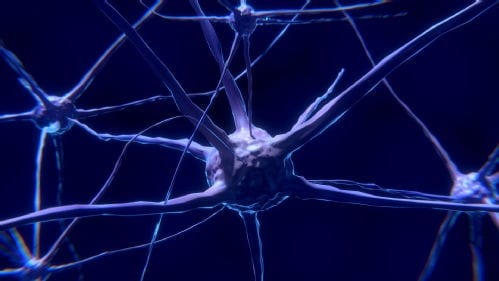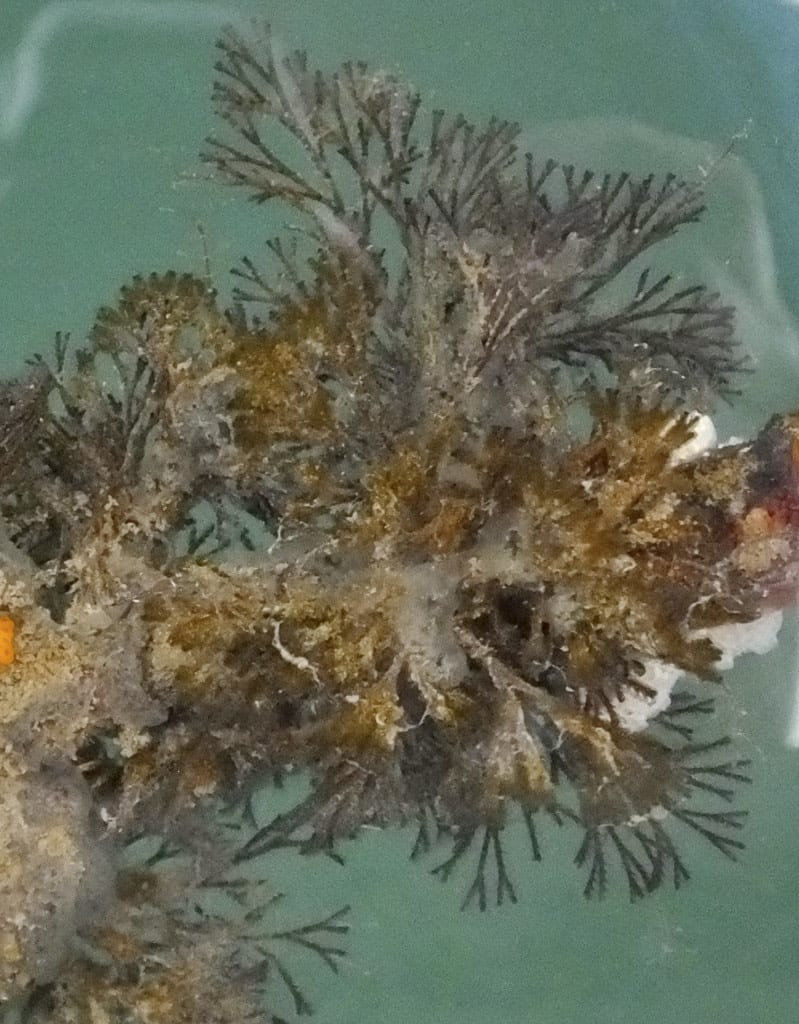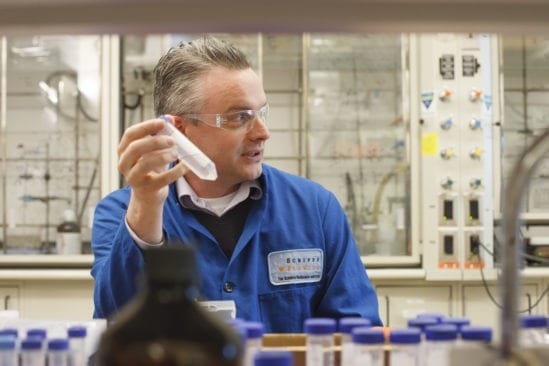
Memory, learning and cognitive flexibility depend on a protein ‘off-switch’ in the brain, according to a breakthrough discovery made by an international research collaboration co-led by the University of Warwick.
This new knowledge could enable us to better understand and combat neurological diseases which inhibit memory, such as Alzheimer’s.
- Memory and learning depend on a protein ‘off-switch’ in the brain – new University of Warwick research
- Arc protein increases rapidly in the brain during learning – researchers made unprecedented discovery that the protein must be rapidly switched off for us to remember facts
- When Arc protein does not get switched off, the brain loses cognitive flexibility
- Discovery could help us understand and combat neurological diseases which inhibit memory, like Alzheimer’s
Dr Mark Wall from Warwick’s School of Life Sciences, with researchers from the University of Bradford and Georgia State University, have found that the Arcprotein – which increases in the brain during learning – needs to be rapidly switched off and removed shortly after we have received new information, in order for us to remember and retain it.
The significance of Arc in regulating the brain’s memory and learning process was already known – but the vital importance of its ‘off-switch’ and removal remained hidden until now.
Cognitive flexibility allows us to learn and adapt to the world around us, picking up and remembering new pieces of information such as visual and audio clues to inform how we act and react to changing situations.
In people living with neurological conditions, such as Alzheimer’s disease, cognitive flexibility is reduced – causing altered behaviour, confusion, and an inability to learn and retain new information, such as the location of a building or a person’s name.
The research suggests that this lack of cognitive flexibility and inability to learn and remember new information could result from Arc protein not being fully switched off and thus persisting in the brain.
Clinical researchers could use this key discovery to better comprehend and treat diseases like Alzheimer’s by targeting the ‘off-switch’, and finding out what causes it to malfunction.
Dr Mark Wall, Director of Biomedical Science at the University of Warwick’s School of Life Sciences, commented:
“To give an analogy to explain our findings: Imagine you are staying at a hotel for a couple of weeks. After the first week, the manager changes your room but won’t tell you where your new room is located. To find your new room, you would have to test your key in each hotel room door until it opened your door. However, once found, the next time you returned to the hotel, you would be able to locate your room quickly using a series of spatial cues that could include which floor your room was on, how far your room was from the elevator, and whether it was located near a fire exit.
Dr Sonia A.L. Corrêa in the Faculty of Life Sciences at the University of Bradford continued:
“Now, imagine a situation where every time you returned to the hotel you had to test your key in every room door until you found your room. This inability to adjust your strategy to find the location of your new room is known as cognitive inflexibility and this what happens if the Arc protein is not switched off correctly. As we age, this altered behaviour occurs more frequently and more importantly, this type of behaviour is found in some forms of neurological conditions including Alzheimer’s disease.”
To make their discovery, the researchers generated a mouse with a mutated form of the Arc protein that did not get switched off or removed. They found that mice containing this mutation were behaviourally normal but had specific defects in cognitive flexibility.
Learn more: Memory processes depend on protein ‘off-switch’ – could lead to new Alzheimer’s treatments
The Latest on: Memory and learning
[google_news title=”” keyword=”memory and learning” num_posts=”10″ blurb_length=”0″ show_thumb=”left”]
via Google News
The Latest on: Memory and learning
- New Braunfels 12-year-old competing for $10,000 at National Memory Master Competitionon April 27, 2024 at 8:56 am
A 12-year-old from New Braunfels is taking a trip down memory lane next week as a finalist for this year’s National Memory Master Competition. Hallie Turek is one of 16 students in the Christian ...
- 'The poster child for memory': Mountain chickadees can remember tens of thousands of food caches, new CU study findson April 27, 2024 at 5:15 am
“Some birds must have really good spatial memory for understanding their migratory routes,” said Scott Taylor, director of CU Boulder’s Mountain Research Station. “Chickadees are kind of the poster ...
- Neuroscience Says You Can Improve Your Memory With Emotion (but There's 1 Important Catch)on April 27, 2024 at 1:25 am
Neuroscience research reveals that integrating emotion and meaning into information can significantly enhance memory and performance. This insight can transform training, communication, and leadership ...
- Brainless memory makes the spinal cord smarter than previously thoughton April 26, 2024 at 8:49 am
Researchers have discovered the neural circuitry in the spinal cord that allows brain-independent motor learning. The study found two critical groups of spinal cord neurons, one necessary for new ...
- How can we harness sleep to enhance our memory?on April 24, 2024 at 9:01 am
How does memory consolidation work, and can we improve our memory retention as we sleep? If so, how? In this Special Feature, we look at what studies have found out about sleep techniques and memory ...
- Two Penn students found Memory Club to train students' memory techniques, cognition skillson April 23, 2024 at 8:05 pm
The co-founders, College junior Naseeb Andar and College first-year Andrew Wong, said that they hope to share techniques to make learning an easy and efficient process.
- Learning X muscle memoryon April 21, 2024 at 2:15 pm
Durban — Muscle memory is a wondrous thing ... which you spent forever learning, do not match the new ones. Or worse, when you stop to think about what button/s you’re about to press and ...
- Teens who eat junk food could have long-term memory problems: studyon April 17, 2024 at 10:55 am
Eating junk food as a teen can cause long-lasting health damage, said Scott Kanoski, a professor of biological sciences at the University of Southern California Dornsife College of Letters, Arts ...
- Study suggests parasite in bad meat affects memory and learning YEARS after you're sickenedon April 15, 2024 at 3:26 pm
One type of parasitic food poisoning has been linked to dementia, schizophrenia and decreased intelligence. A new study from Prague adds to the evidence.
via Bing News










